Veronika Jaglova: Europe’s Water Challenges
Welcome to Circle of Blue Radio’s series Five in 15, where we’re asking global thought leaders five questions in fifteen minutes, really, more or less. These are experts in journalism, science, communications design, technology and water, and really everything in between. I’m J. Carl Ganter hosting this week.
The past month was a busy time for the water sector in Europe. Just as the Fifth World Water Forum wound up Istanbul, the European Commission hosted the Second European Water Conference in Brussels. Our guest today attended both. We’re joined from Prague by Veronika Jaglova, Water Director at the Czech Ministry of the Environment.
The Czech Republic is now presiding over the European Union at a key moment for Europe’s water future. As countries are trying to implement a common water framework, the European Commission called for Europeans to plunge in to the debate. Who joined the debate and what came out of it? Circle of Blue Reporter Nadya Ivanova spoke with Veronika Jaglova to find out.
You attended both the World Water Forum and the European Water Conference. What are the major issues that emerged from these meetings?
The main issue was the right to water. Water was discussed a lot because a lot of states would like to have the right to water and sanitation as a human right. It was also discussed inside the United Nations, but there was no decision, and they hired some experts for that, and he has three years and he will come with some conclusions if right to water is really a human right and if it’s needed to have it a separate human right or if it’s already included in other human rights as a human right to health or human right for good environment and other human rights. And what was also discussed during the World Water Forum was interlinkage between climate change and water, and all water experts think that it is necessary to move water as a big issue to climate sector. So, there is planned even in November a COP 15 which will be about the climate change and the impact of climate change. The water experts plan to have one part of this even for water issues.
There have been a lot discussions worldwide whether water should be put on the table in Copenhagen, along with climate change. What are your perspectives regarding these two issues?
I think that climate change is now a very fancy issue, so its discussed a lot now, especially in relation with water scarcity which is also a big issue now because there is a lot of countries which have trouble with water scarcity and lack of water. It’s not only problems for developing countries, but also in Europe. There is a lot of activities taken by Spain, also Cyprus, France, because they have bit troubles with water scarcity right now. Now during the economic crisis, it is very difficult to find the money for this, but this is also a very big issue now also for Europe. But climate change is still the main issue for water because, maybe as you know, water is the vital part of the environment and without water, there is no life. There are thoughts by water people that water must be moved to high political levels because there is a lot of issues which must be discussed on the political level also, because there must be a lot of political decisions, especially in finance and legislation. One conclusion from this Summit is also to move water to high political levels because the time for it is now.
And events like the European Water Conference are one way to do it, but what is Europe doing to solve its water problems?
I think all of Europe is much involved in the water issue now. There is a lot of action, there is a lot of conferences, there is a lot of events about water, and we are trying to have a community approach to these issues. We have the Water Framework Directive, which is the main directive for water issues, so now in Europe we are finalizing the plans for water management, which will be finished at the end of this year. There is a lot of water measures planned until the end of 2012. What is also done now, there is the White Paper, the paper including special measures for climate change or measures for impact on the climate changes, and that is very new because it was finished on 1 April, so it is quite new, and now there is a plan to transport this White Paper to national legislation or to national plans in each country. That is how Europe is somehow prepared for climate change, not only in the water sector but also in other sectors, such as agriculture, forestry, industry, and other sectors. The common approaches of EU are still in the process.
And what water challenges do you see in Europe in the future?
The main challenge is to think outside the water box, which means to involve other sectors to water issue because now we somehow already solved the problems inside the water sector, but we have to think also outside. This means that we have to involve agriculture, industry, also public must be much involved in the water issue, because water is not only issue for water people, but we have to involve other sectors because they are main users of water, especially agriculture and industry. We have to involve them, we have to inform them about problems we have in water issue, so that’s the main challenge now for Europe.
And what are the obstacles to Europe moving water to these other sectors?
From my perspective, the problem is we have a lot of documents about water issues, but they are very complicated. The problem is that we to find a way how to make the information about water very clear and simple for the public. That is a very big challenge I think, because you have a lot of information, you have a lot of legislation, especially in Europe, you have a lot of parties, a lot of philosophies, but all information you can find on a website, but they are very complicated for the public. I think that we have to find a way how to inform people very simply and how to use the media also for this, because, as you know, the media is a good way how to inform people. They make it difficult to work with these documents, which are not so understandable for the public.
The issue of the public comes up again and again during water meetings. Why is it so difficult to engage the public in water discussions.
I think the problem is that there is no capacity building for this. There is also no, especially in my country, there is no budget just to make clear information for the public, because they just have water in their houses. That’s fine, because water, especially tap water, is part of their life, so they are very happy that they have water in their houses, but they just don’t care how the water is provided, how it’s cleaned, and whatever. It’s just a normal part of their life, that’s it. That’s the reason why they don’t care, I think. That’s the big difference between Europe and other countries because in developing countries, they have no water, so they have care somehow, but in Europe, it’s almost solved. I think that’s the reason why the public is not so involved in this issue because they just really care on this issue only during floods.
Five or ten years from now, what do you see is the major progress in the European Union in dealing with water?
We need to make all the measures which are planned in the River Basin Management Plan. There is a lot of measures related to pollution from waste water. There is a lot of measures related to agriculture, to the industry, so there are a couple of measures for hydro-meteorology problems. That’s the main issue for Europe for now.
Are you optimistic that the response will build in time?
Actually, I have to be optimistic because I’m also part of the whole list process, so I am optimistic, but I think that the year 2015 is very close, and there is much more work than only these measures which are planned to the year 2015. I think we have a lot of work until the year 2027 and also after that, but I’m very happy that we are part of Europe because I think that the approach in Europe is quite good in comparing with other regions.
Circle of Blue’s Nadya Ivanova has been speaking with Veronika Jaglova, water director at the Czech Ministry of the Environment. Be sure to turn in to Circle of Blue online at 99.198.125.162/~circl731, where you also find a transcript of this and other interviews. Our theme is composed by the Nadav Kahn, and we’ve had support today from Traverse Legal. Join us again for Circle of Blue Radio’s Five and 15. I’m J. Carl Ganter.
Circle of Blue Radio is made possible with generous support from Traverse Legal.
Circle of Blue’s east coast correspondent based in New York. He specializes on water conflict and the water-food-energy nexus. He previously worked as a political risk analyst covering equatorial Africa’s energy sector, and sustainable development in sub-Saharan Africa. Contact: Cody.Pope@circleofblue.org


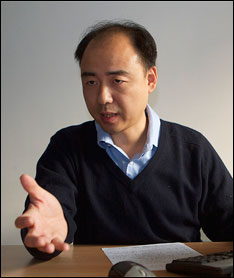
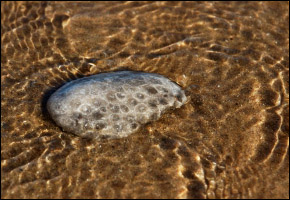
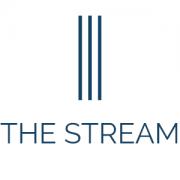


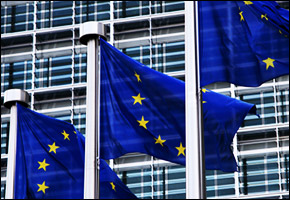
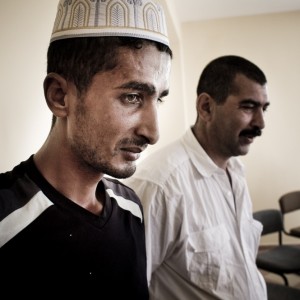
Leave a Reply
Want to join the discussion?Feel free to contribute!